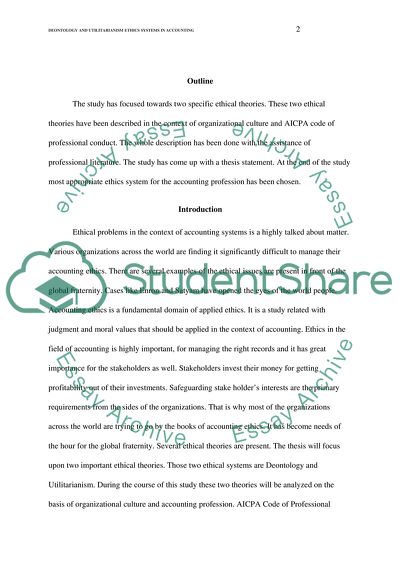Cite this document
(Deontology and Utilitarianism Ethics Systems in Accounting Research Paper, n.d.)
Deontology and Utilitarianism Ethics Systems in Accounting Research Paper. https://studentshare.org/finance-accounting/1845899-deontology-and-utilitarianism-ethics-systems-in-accounting
Deontology and Utilitarianism Ethics Systems in Accounting Research Paper. https://studentshare.org/finance-accounting/1845899-deontology-and-utilitarianism-ethics-systems-in-accounting
(Deontology and Utilitarianism Ethics Systems in Accounting Research Paper)
Deontology and Utilitarianism Ethics Systems in Accounting Research Paper. https://studentshare.org/finance-accounting/1845899-deontology-and-utilitarianism-ethics-systems-in-accounting.
Deontology and Utilitarianism Ethics Systems in Accounting Research Paper. https://studentshare.org/finance-accounting/1845899-deontology-and-utilitarianism-ethics-systems-in-accounting.
“Deontology and Utilitarianism Ethics Systems in Accounting Research Paper”. https://studentshare.org/finance-accounting/1845899-deontology-and-utilitarianism-ethics-systems-in-accounting.


